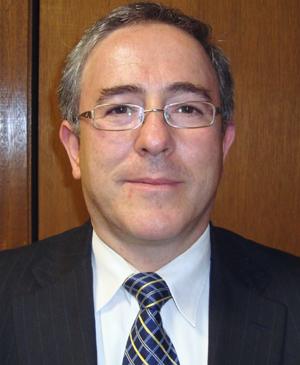
By Barb Arland-Fye
DAVENPORT — Gershon Kedar, deputy counsel general of Israel to the Midwest, was in the Quad-Cities last week to share his thoughts on Israel at a crossroads.
His visit occurred while Pope Benedict XVI was on pilgrimage in the Holy Land calling for peace and a settlement of the ongoing conflict between Israelis and Palestinians.
The Catholic Messenger spoke with Kedar concerning the pope’s visit and its potential for improving peace prospects.
Kedar, a career diplomat who works out of Chicago, said Pope Benedict’s visit was meaningful because it was his first to the Middle East as pope and only the third visit by a pope to that region.
“The main way of promoting true peace is through dialogue, Kedar said, which is what the pope did throughout his trip May 8-15.
During his visit, Pope Benedict repeated his call for an independent Palestinian state and security for Israel, adding that the “two-state solution” should become a reality and not just remain a dream.
Kedar said Israel has no problem with the two-state solution, but made it clear that the main issue is security. An example of that security is the 26-foot-tall concrete security wall that the pope encountered as he crossed the border from Israel to Bethlehem. He later was quoted as saying the wall was one of the “saddest sights” on his pilgrimage.
The barriers along the Israeli/Palestinian border can be dismantled if Israelis are assured they will be secure, Kedar said.
“Putting up the fence was not a luxury for Israel, but a necessity” to protect Israelis from suicide bombings, he said. The aim is to find a balance between the security advantages and the effect on the fabric of life of Palestinians, he added.
He sees the pope’s visit as helpful in promoting dialogue among people who otherwise might be unwilling to talk with one another.
“Having someone of such stature from the outside helps break down the insular feeling of people so that they are more willing to accept other voices,” he added.
The pope “is over there and seeing the situation for himself and looking for ways to build co-existence and reconciliation,” said Allan Ross, executive director of the Jewish Federation of the Quad Cities, who accompanied Kedar on a May 14 visit to The Catholic Messenger.
Ross also referred to the plight of Christians in the Holy Land, whom the pope sought to encourage as well during his visit. The decline in the Christian population in the Arab countries is a significant loss to the fabric of those countries, Ross noted.
Neither Kedar nor Ross can predict the outcome of the pope’s pilgrimage to the Holy Land.
But Kedar offered this observation: “I hope people on both sides will seriously think about (the pope’s ) message and realize that each person’s own truth shouldn’t be incompatible with that of other people in the area.”








